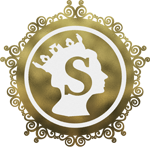Chemistry (AKA Take Your Medicine)
Owner:
Patrick Fenelon
Solution:
SOLUTE
GC Notes:
There are 2 booklets at GC containing Intern team answers and drawings of badges
Presentation:
See start clue to the right


Walkthrough:
The first thing interns should notice is the CAS numbers, if you read the numbers off each jar 2 digits at a time (ignore the dashes, these are there so they match the format of actual CAS numbers) the numbers are 01-26 and are letter indexed.
Decoding all jars in order yields: Prime Factorize Number On Student Badge
From this they should realize that they will need their badges next and that the strange symbols on the badges are in fact digits.
They should also realize that each of the jars is one of the first 6 prime numbers.
Each of the colors of M&Ms maps to the following prime:
2 - Brown
3 - Red
5 - Orange
7 - Yellow
11 - Green
13 - Blue
Each M&M in front of a badge means multiple its prime together, for example 2 brown and 1 orange means 2x2x5=20
Using the 4 sample badges they can obtain a partial decoder key
Pied Piper: [2 Red]
- They can do the math for 3x3 and know that this symbol maps to '9'
Pinocchio: [2 Orange]
- 5x5 means this is 25, so they know '2' and '5'
Hansel: [1 Orange, 1 Yellow]
- 5x7 means this is 35, so they know '3'
Peter Pan: [3 Yellow]
- 7x7x7 means this is 343, so they know '4'
From this they now know 2,3,4,5, and 9
They now can use their own badges to decode the remainder of the symbols. Because they know that the number just prime factorize down to the 6 lowest primes, they can do guess and check against the unknowns on each badge. There will always be one badge that has only one unknown number.
Their next step is to factorize their own badge and present the right combination of M&Ms to the proctor.
Take the following example (each digit is the power on a successive prime, so 1 2 3 0 3 1 means 21 x 32 x 53 x 70 x 113 x 131 )
If they add up all the powers of 2 and then all the powers of 3, etc they will get 19 16 12 21 20 5(each team will get these numbers, the numbers for each team have been chosen to satisfy this condition)
If they letter index this they will get "SOLUTE" the final answer for the puzzle
Hinting:
Have teams look at CAS number (its 2-digit letter indexed), teams need to read every 2 digits regardless of dashes and commas
Yes, teams need to do a little guess and check.
It is a really limited problem space if they look at the badges in the right order, it is designed such that teams will have to factorize no more than 14 numbers (but in practice this is more like 7)
Make sure teams know 2,3,4,5 and 9
These are given with the sample badges
Double check factorizations for them (refer to GC booklet at GC
Make sure they reconsider the "Lab report (team)" clue when they have decoded all the numbers [Step 3]
Teams that ignore the onsite instructions will forget about this clue and get stuck here
Data:
Jars:
2-Azobisisobutyronitrile
CAS: 1618091-30-5
3-Butanedione, Psilocybin
CAS: 060103-20-1, 518092-60-5
Ammonia, 5-Fluorouracil
CAS: 14-21-1, 3020-51-8
Fumiquina-7-zoline
CAS: 1-51-4
Tetrachloro-11-dioxin, Cyanide
CAS: 19-20-2, 104051-42-0
Chlorodifluoro-13-methane
CAS: 0201040-70-5
Clue from CAS#s: Prime Factorize Number On Student Badge
Once they solve this step they should know all the digits:

Numbers for each person:
Look at booklet at gc
Chemistry
Assignment 1
Lab work (individual)
You have each been assigned a compound to synthesize. These 6 base chemicals are powerful tools that can make any product.
Your teacher can verify have the right combination of chemicals to make your compound.
Lab report (team)
You must combine the work of your entire team. Be sure to organize your results by the order of your prime, important conclusions.
